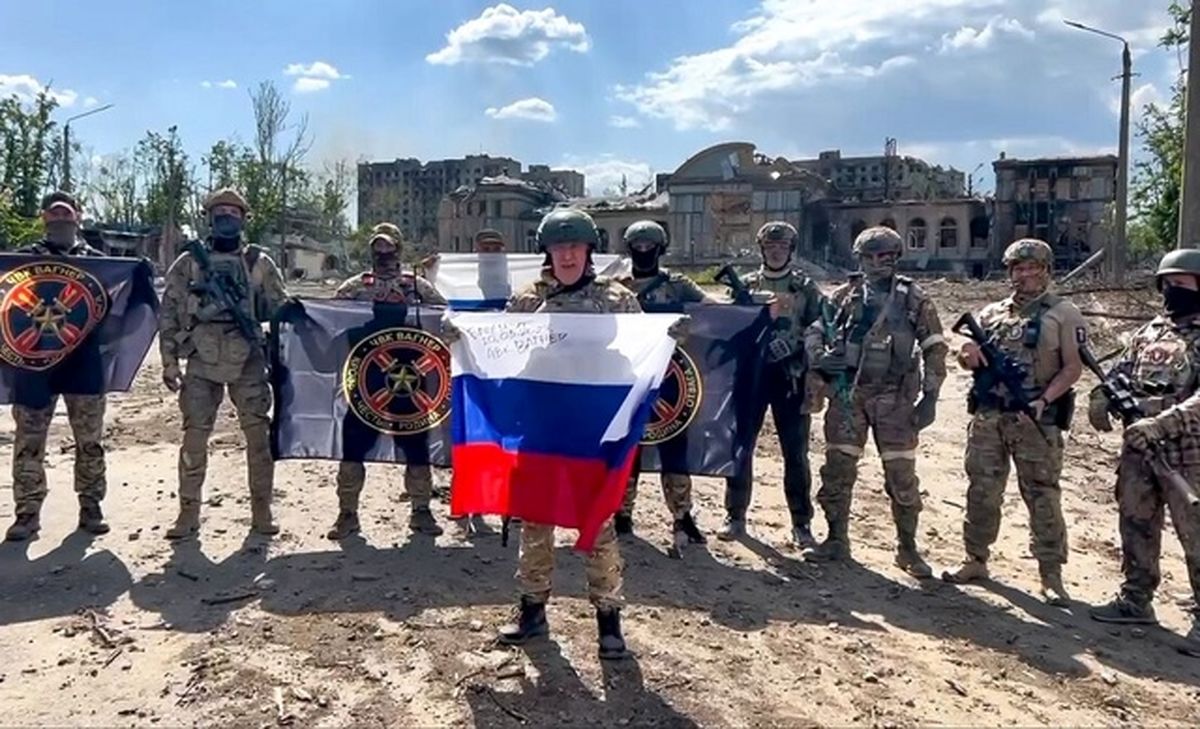In an interview with the website of the Strategic Council on Foreign Relations, Mehdi Shapouri referred to the Pentagon spokesman’s statement that Wagner no long participates in the Ukraine war as a force with a significant operational capacity and commented on the prospect of a confrontation between Kremlin and Wagner noted: Wagner’s operational capacity has been destroyed; because while losing their previous organization, they have also handed over their weapons and therefore they have been deprived of the possibility of any activity. Part of them, in cooperation with the Ministry of Defense of Russia, has become a subsidiary of the Russian command in the Ukraine war, and another part is engaged in Belarus in the training of the country’s military forces, which is considered an opportunity for Belarus.
Saying that the proposal of mediation by the president of Belarus was aimed at preventing Putin’s desperation in giving concessions to Wagner became outstanding. The dignity of Putin and the Russian government would not be harmed; he continued: Wagner created doubts in the public opinion of Russia regarding the war in Ukraine, the consequences of which will not disappear quickly. Especially Prigogine’s statements about the state of Russian forces in various operations, lying about Russia’s favorable position, and the high casualties in the war had important effects on Russia. Those events, outside of Russia, also affected the image of Putin and his government and showed allies and opponents that stability in Russia is not as serious as Putin’s government shows.
The analyst of international affairs said: Although those tensions have ended, it had created this image inside and outside of Russia that when the driving force of Russia’s official policy was able to hold such a maneuver without encountering obstacles and without opposition from the public opinion; it shows how fragile the Russian government is regarding political stability and considering the vulnerability of the government’s stability and security, such incidents can happen in other sectors as well.
Pointing to the dangerous consequences of creating doubts about the security and military organizations for the future of Russia, Shapouri added: Considering the recent arrests and dismissals of Russian army officials, this situation will lead to a settlement in that country’s military and security structures. Such conditions can be very effective in the war in Ukraine. Therefore, although Wagner’s military rebellion was contained in the short term, it will have many medium-term and implicit consequences.
He pointed to Vladimir Putin’s proposal to choose “Andrey Troshev” as the new leader of Wagner and said: He was one of the founders of Wagner and is close to Putin. Those who have worked in Wagner cannot be placed under the Russian army at once. The new leader, in fact, is supposed to advance the integration process of those people. Therefore, this Wagner is not the Wagner of the past that unofficially drove Russian policies. But now, those who do not want to follow the official policy of Russia would either go to Belarus or leave that group, and others are absorbed into the Ministry of Defense in the form of an army.
The member of the Research Institute for Strategic Studies, emphasizing that we should consider Wagner as being finished and annihilated, added: In any case, they are capable people who can act against the Russian government, join organizations related to organized crime, or be used by others against Russia or for its benefit; because they are mercenaries who may turn their weapons in favor of anyone who pays.
Saying that Wagner has handed over its weapons to Russia and that Moscow is closely monitoring them, Shapouri considered the possibility of taking organized measures against the Kremlin impossible and on the effect of Wagner’s absence in the war in a situation where advanced Western weapons have been sent to Ukraine, noted: Wagner is carrying out offensive operations, but now Russia is not on the offensive stage. In order to enter the invasion phase, Moscow needs about two years to recover. This country is currently defending and does not need Wagner in defense, either.
He continued: The obstacles Russia has created against the advance of Ukrainian forces show that defense is now more important than aggression for the Russian government. Currently, Russia cannot attack in terms of forces, equipment, and ammunition; at this stage, it will defend the captured areas. If Ukraine fails to advance, the war may freeze, and in that situation, Russia will restore its strength to be able to carry out offensive operations in the next year or two.
The faculty member of the Research Institute for Strategic Studies emphasized that diplomacy in the current situation cannot solve the issue of the war in Ukraine due to the distance of views, and said: This war will continue unless Ukraine can make progress or there is a change in Russia that prepares for reconciliation. In the current situation, there is no prospect of ending the war in Ukraine. This issue will not be resolved even with a temporary ceasefire agreement. Because Ukraine is determined to be a member of NATO, and Russia sees this situation as a threat. If Ukraine joins NATO, it will be a strategic defeat for Russia.
Shapouri added: As long as the current governments are in power in Russia and Ukraine, reconciliation between them is difficult. Besides, it will be very costly for the West if it wants to give concessions to Russia in Ukraine, and nothing but the defeat of Putin in Ukraine is in the interest of the West. The West evaluates that the lack of failure of Russia will disrupt the international order; therefore, the options of the West are also limited.










0 Comments